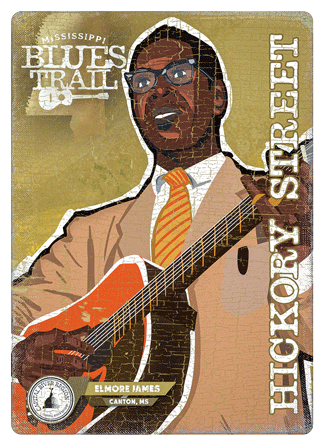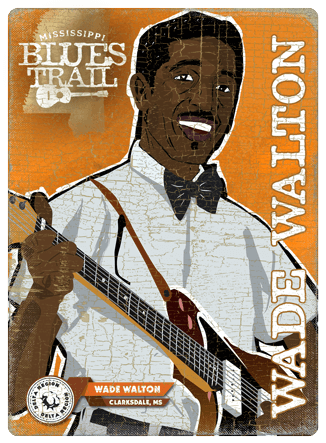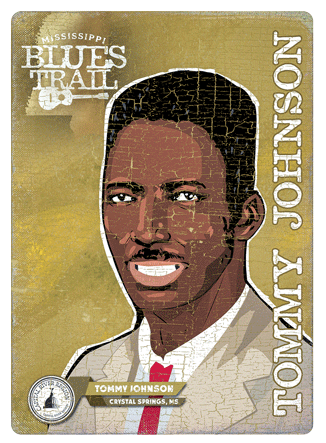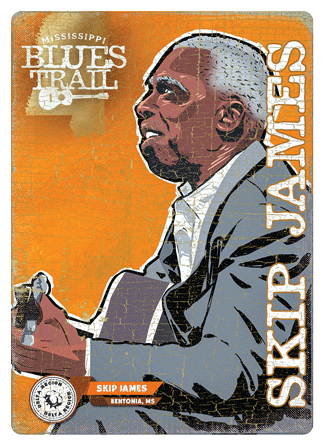
Hickory Street, known locally as “The Hollow,” was a hub of social life, commerce, and entertainment for the African American community of central Mississippi for several decades, up through the 1970s. Canton’s most famous blues musician, Elmore James, performed often in the local cafes and clubs. James also learned the electronics trade by working at Robert’s Radio Repair on Hickory Street. His experiments with sound technology led him to develop a powerful and original electric blues style.
Hickory Street was once one of several centers of blues activity around Canton. Blues performers including Elmore James, B.B. King, Howlin’ Wolf, and Sonny Boy Williamson II appeared at venues such as Bessie’s Hideaway and the Star Lite Café on Hickory Street, Club Delece on Franklin Street, Club Desire on Union Street, and the Blue Garden on Liberty Street, as well as at grocery stores and outdoors on the streets. East of town, the Sawmill Quarters, where employees of the Denkmann Lumber Company lived in shotgun houses, was another hot spot for blues. In rural Madison County, string bands and guitarists played at country suppers and dances; renowned local performers included guitarist William “Do-Boy” Diamond and fiddler Theodore Harris. Guitarist K.C. Douglas, from Sharon, north of Canton, recalled that Harris drew such crowds that when he played in town the streets had to be blocked off.
A prominent performer in the 1920s and ’30s, at the sawmill and at various nightspots in Canton, was Little Brother Montgomery, one of the foremost blues pianists of the era. Montgomery once shared piano duties at the sawmill camp with Sunnyland Slim, and also traveled with a Canton-based jazz group, Eugene Watts’s Serenaders. The Montgomery family later moved to Canton to work for the lumber company. The family included pianists Joe and Tollie Montgomery and nephew Paul Gayten (later a major New Orleans R&B bandleader). Elmore James became a popular act with the sawmill crowd in the early 1950s, when he lived and worked in Canton with guitarist Robert Earl Holston, owner of Robert’s Radio Repair at 153 Hickory Street. Holston helped James devise ways to amplify his guitar, which he played with a slide (a steel tube) on his finger. James did some of his first recordings at Club Desire. His influential records made him a model for slide guitarists around the world, famed for a distinctive sound that came to fruition here in Canton.
Hickory Street’s blues tradition has been celebrated in more recent years by the Hickory Street Festival, which began in the 1980s, and by guitarist Jessie Primer, Jr., on his 2002 CD Dancin’ On Hickory Street (The Hollow). Canton has also been home to blues recording artists Johnnie Temple, John Lee Henley, and Grady Champion, as well as jazz saxophonist Jessie Primer III, Louisiana slide guitarist Sonny Landreth, Nashville studio guitarist Bucky Barrett, and gospel singers Cleophus Robinson, Sister Thea Bowman, and the Canton Spirituals.


